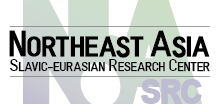On Saturday 27 January 2018 Kyushu University hosted the final symposium for its Center for Asia-Pacific Future Studies (CAFS). The English title – Crisis in Northeast Asia – indicated the dominant theme of the day which was assessing the challenge to the region posed by North Korean missile testing. The Japanese title, however, offered an alternative nuance by including the word kiro – suggesting a critical turning point. The difference between the two titles reflected the variety of arguments put forward: some speakers emphasised the high level of danger in Northeast Asia while others were more sanguine about the future.
In their opening remarks, Watanabe Koichiro (Vice-President, Kyushu University) and Jekuk Chang (President, Dongseo University) praised the work done by CAFS during the previous three years. Following his remarks, Professor Chang took his place on the Special Symposium panel to discuss the ‘North Korean problem’. Skilfully chaired by Izumi Kaoru (Faculty of Law, Kyushu University), the other participants included Mimura Mitsuhiro (Economic Research Institute for Northeast Asia), Jong Seok Park (CAFS) and Ko Il (Shimane University). The four panellists outlined to what extent they thought that a ‘threat’ existed. Views diverged over merits of American foreign policy in the region and the long-term causes of North Korean actions. Drawing the panel’s attention to factors other than diplomacy, Professor Izumi encouraged lateral thinking. He warned of the risks of strident Japanese media coverage and asked about how civil society might respond to current events. Encouraged by the Chairman’s opening up of the discussion, the panel received many questions from the audience. Some of the most interesting focussed on what role China and Russia might play in influencing North Korean policy.
After the Special Symposium, the first panel tackled the question ‘The US-Japan-China-Russia Security Nexus? David Wolff (Slavic-Eurasian Research Center (SRC), Hokkaido University) began with a critique of the state of foreign policy making under President Trump. Noting that special counsel Robert Mueller’s investigation into Russian interference had already made considerable progress uncovering evidence of wrongdoing, Professor Wolff warned that Trump might be tempted to instigate a conflict over North Korea to distract from events at home. The second speaker, Serghei Golunov (CAFS), analysed Russia’s ‘eastern pivot’ to China, Japan, South Korea and Turkey. He argued that this move had partly rebalanced the respective economic importance of the EU and China. Nevertheless, it had failed to lead to an economic breakthrough with several important Asian partners. Masuo Chisako (Graduate School of Social and Cultural Studies, Kyushu University) then discussed the role of North Korea in Sino-Japanese relations. In her opinion, over the last five years Sino-Japanese relations had improved because of the need to engage over the North Korean issue. When North Korea is a global level issue such cooperation becomes increasingly necessary. As a result, Professor Masuo explained, there was now a chance for Japan to improve its bilateral relations with China but this opportunity would not last for long. Akihiro Iwashita’s (CAFS/SRC) paper concluded the session. His point was that Russia was able to take a relatively flexible role in Northeast Asia in a way that was not possible in Europe. Consequently, although Russia is often missing from analysis of the region, the country frequently has an important role to play in international issues.
CAFS final contribution to academic debate was the panel ‘Future-proofing Northeast Asian Security’. Chairman Yabuno Yuzo (Kyushu University) encouraged a disciplined approach to a topic that proved tricky for the panellists to explain. Beom-Shik Shin (Seoul National University) spoke of the need to look for solutions to the Northeast Asian security problems by using academic theory that takes the region on its own terms. Too often, he suggested, academics use theory based on European experience to analyse Northeast Asia. Paul Richardson (Birmingham University) outlined how he saw the main players in Northeast Asia dealing with future security threats. Sato Takeshi (Shimane University) invited the audience to consider the role civil society might play in improving the security situation and Miyawaki Noburu linked the discussion to current debates in Mongolia. Several incisive interventions from the audience improved the panel’s coherence.
Professor Iwashita delivered the closing remarks by thanking the CAFS staff and the translators for their hard work. He reflected on the achievements of CAFS and explained that he was going to carry the Center’s main achievements with him in his future research.

 Eurasia Unit for Border Research (Japan)
Eurasia Unit for Border Research (Japan)




